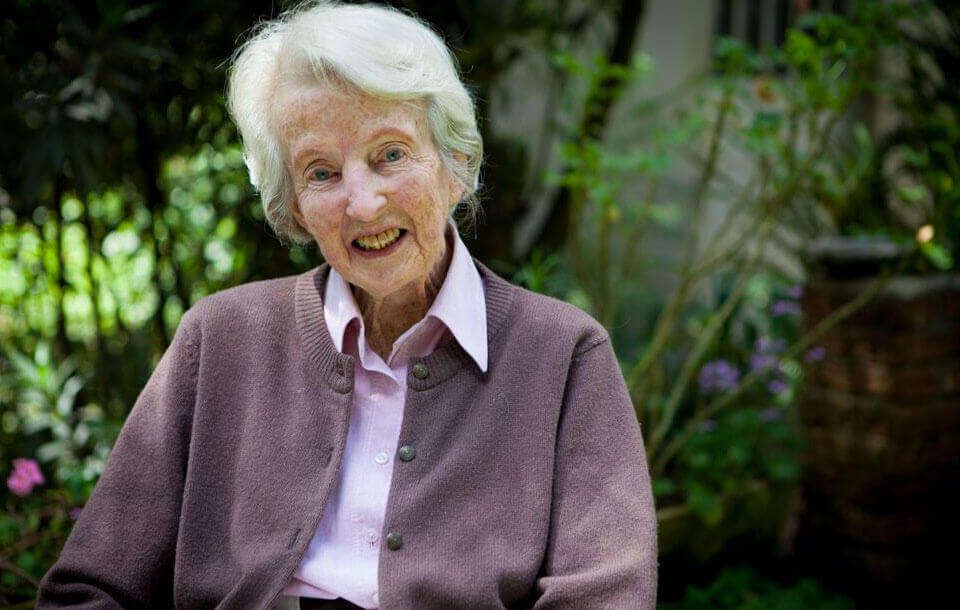Depression and Fistula. The heartbreaking reality of an obstetric fistula injury for women in sub-Saharan Africa is that its consequences go far beyond the physical damage caused by the traumatic childbirth. For women suffering from fistula, the constant leakage of urine and/or feces leads to inescapable stigmatization within their communities that often results in social isolation.
Due to myths and misunderstandings surrounding the causes of fistula injuries, women will often be outcast by their husbands and families, further adding to their distress. With no apparent means of supporting themselves, these poor women will endure a terrible quality of life, frequently suffering from depression.
Hamlin Fistula Ethiopia has long recognized the tragic psychosocial implications of a fistula, and through the Rehabilitation and Reintegration Program is successfully addressing many of these issues. A series of recent studies has shed further light on the psychological aspects of fistula injuries, underscoring the need for a holistic approach to treating fistula.
The extent of depression amongst fistula sufferers
That depression is an inherent consequence of fistula would be of no surprise to those working in the field or those familiar with the heartrending circumstances of Hamlin patients. A recent study undertaken by Mount Kenya University and published in the International Journal of Sciences has found various psychological effects associated with fistula.
The main such effects reported by the 190 women participating in the study survey were sadness (33%), social withdrawal (28%) and loss of self-worth (23%). An additional study, published in BMC Psychiatry and conducted on 306 women in Ethiopia, determined that 97% of women with urinary incontinence showed depressive symptoms whilst 100% of those with both urinary and fecal incontinence showed such symptoms. This is a truly alarming figure.
The study also found that depression was more prevalent among rural than urban women and among divorced than married women. Various other reports have estimated that fistula results in divorce for 50% of women suffering from this condition. For those who remain married, 77% of women will not discuss their problem with their husband. These figures paint a picture of an isolating life for fistula patients, deplete of hope for a better future.
Surgery - repairing more than just physical injuries
The team at Hamlin Fistula Ethiopia is performing miraculous work in repairing the injuries of fistula sufferers. Such surgeries not only repair the physical injuries but, according to recent evidence, mend emotional scars too.
In February of this year a team from the University of South Africa’s Addis Ababa campus published a study on the effects of fistula repair on the severity of depression and anxiety for women in Ethiopia. The results were extraordinary – the prevalence of depression reduced from 91% of participants prior to surgery (with 11% having severe depression) to 27% of participants post-surgery. Similarly, anxiety was prevalent in 79% of participants prior to surgery, reducing to 26% of participants after surgical repair of their fistula. Interestingly, the study found a correlation between the severity of leaking and the persistence of depression and anxiety symptoms at follow-up.
This suggests that women who endure more prolonged and more significant traumatic experiences may require more than surgery to improve their mental wellbeing and reclaim their lives.
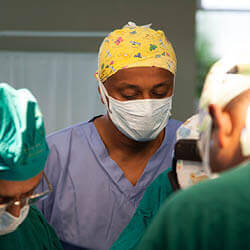
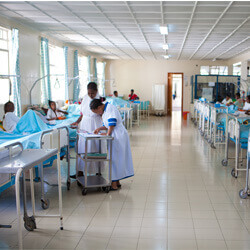
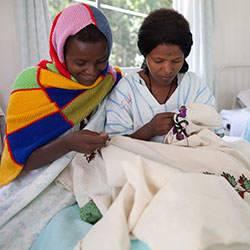
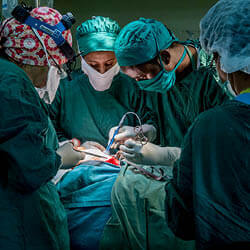
Rebuilding a life
Although fistula surgery may repair a woman’s physical and emotional wounds, reintegration back into the community will remain a difficult challenge for many. A 2016 journal report in BMC Pregnancy and Childbirth summarized the main concerns of fistula patients in Malawi both before and after restorative surgery. The greatest concerns of women prior to surgery included the ‘fear of death during surgery, having an irreparable fistula and marital discord’. ‘Urinary leakage, difficulties conceiving and general negative thoughts’ also presented as pressing issues.
Following surgery, these concerns evolved to surround relationship challenges predominantly, as well as persisting financial challenges and the need for additional surgery. Thus, it is apparent that the medical complications of a fistula are only half the story. It is necessary to help women regain their sense of worth and rebuild their lives. In fact, the authors of the aforementioned study of women in Kenya recommended that fistula victims receive counselling services alongside vocational training to aid in their recovery and their return to community. This is where Hamlin’s Rehabilitation and Reintegration Program fulfils such a vital purpose.
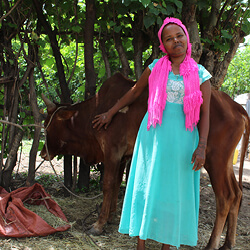
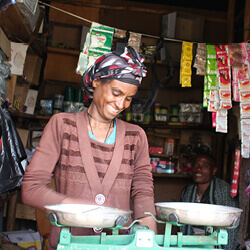

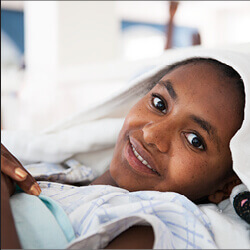
Hamlin's pioneering and holistic approach to recovery
Hamlin Fistula Ethiopia recognizes that after suffering so much, fistula patients need to regain their dignity. At Desta Mender, meaning ‘Joy Village’ in Amharic, this is exactly what occurs. This peaceful and purpose-built recovery center allows long-term fistula patients to continue to heal through a comprehensive Rehabilitation and Reintegration Program. Amongst friends who share an understanding of what it means to have endured fistula, women find themselves immersed in a caring community. In response to the significant psychological effects of a fistula, women at Desta Mender are offered counselling, helping them to better understand their injuries and the subsequent trauma.
The program also offers literacy and numeracy classes and vocational skills training. This affords fistula patients the confidence and expertise necessary to become independent members of their communities and is central to them regaining a sense of self-worth. In fact, the Malawi study revealed that for 75% of women, improved income-earning ability positively contributed to their quality of life post-surgery.
Read about the incredible progress made by former fistula patients.
Rebuilding a meaningful life and regaining a positive outlook after enduring so much is a remarkable achievement that speaks volumes of the courage of women who arrive at Hamlin. It is also testament to the tireless efforts of the team at Hamlin Fistula Ethiopia and the incredible compassion of Dr Catherine Hamlin.
Catherine has always sought to understand her patients for the person that they are - each an incredible individual with her own story, her own suffering and her own hopeful future ahead.
Author: Natalie Stals, medical student interning at Catherine Hamlin Fistula Foundation
Help finish what Catherine started
